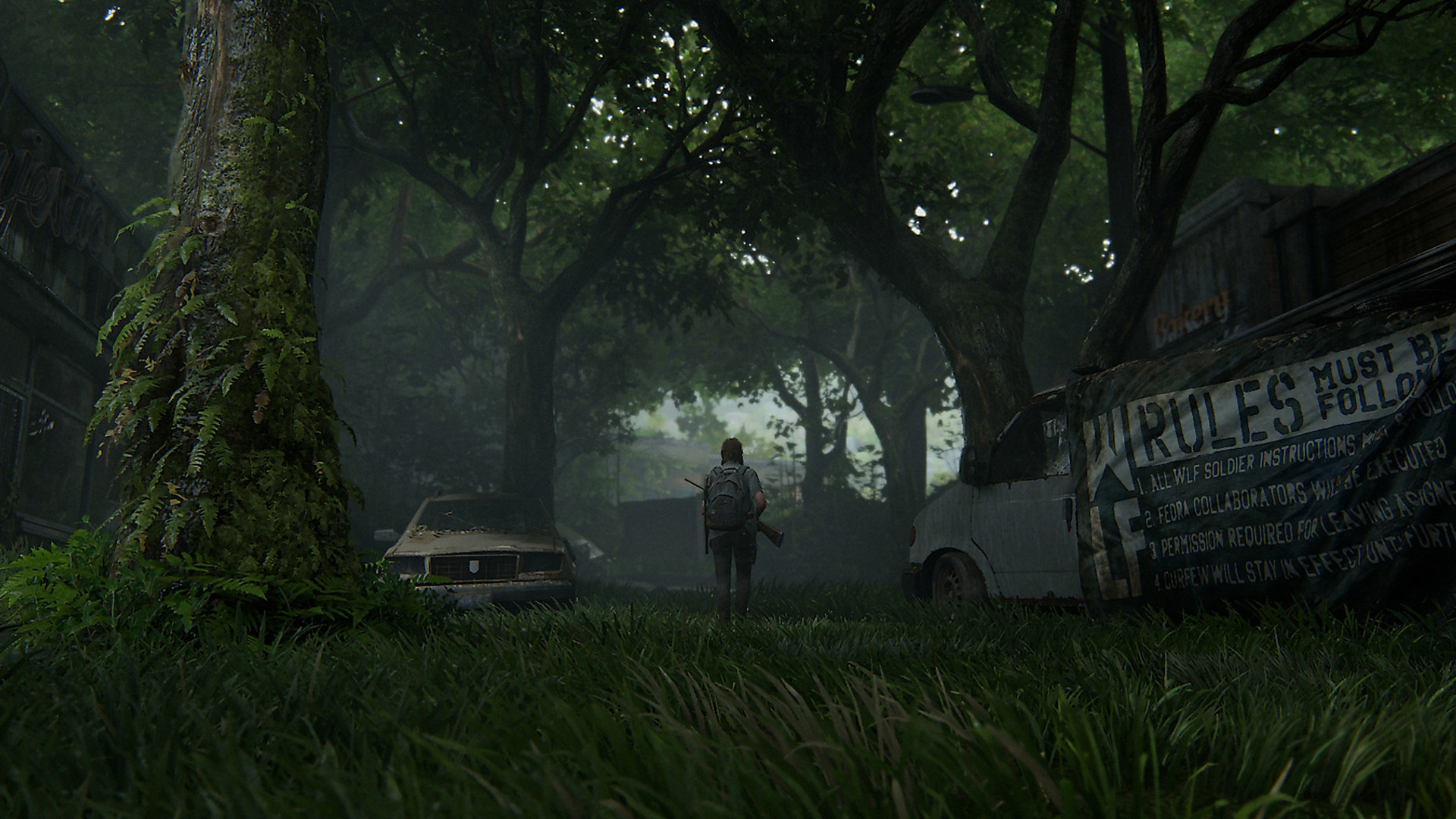
The Last of Us Part 2 tries to play both sides of exploitation horror and loses
Months before it came out, The Last of Us Part 2 was courting controversy. A leaked plot summary had fans decrying Naughty Dog’s Triple-A sequel as a “shit show” made exclusively for SJWs. Joel’s death was deemed pathetic. Playing as his murderer, Abby, a strange, sadistic twist. Making Ellie’s sexuality and relationship with Dina a focal point was needless pandering. Of course, a good portion of this is bigoted nonsense from a gaming culture that struggles with anything even mildly deconstructive or forward-thinking. That’s not to say that the game doesn’t have obvious cultural aspirations, and it also doesn’t mean that the game is above criticism.
The Last of Us Part 2 is, at its core, a blockbuster piece of exploitation horror. Centering female protagonists and their trauma in a two-way hunt for retribution, the double-sided revenge plot borrows liberally from rape-revenge and Giallo films, but delivered in the technical sheen of a prestige drama and visceral, bullet-heavy action of your standard Triple-A videogame. It’s an attempt to be both approachably mainstream and subversive in its narrative cues, using motifs and plot devices that had previously attracted widespread consternation and censorship, and packaging them in the biggest game of the year. And the amount of outcry before anyone had even played it was an early sign of success, as the reaction to the game’s downplaying of hetero-normativity and masculinity echoed the conservative nature of ratings boards and distributors of the sixties, seventies, and eighties.
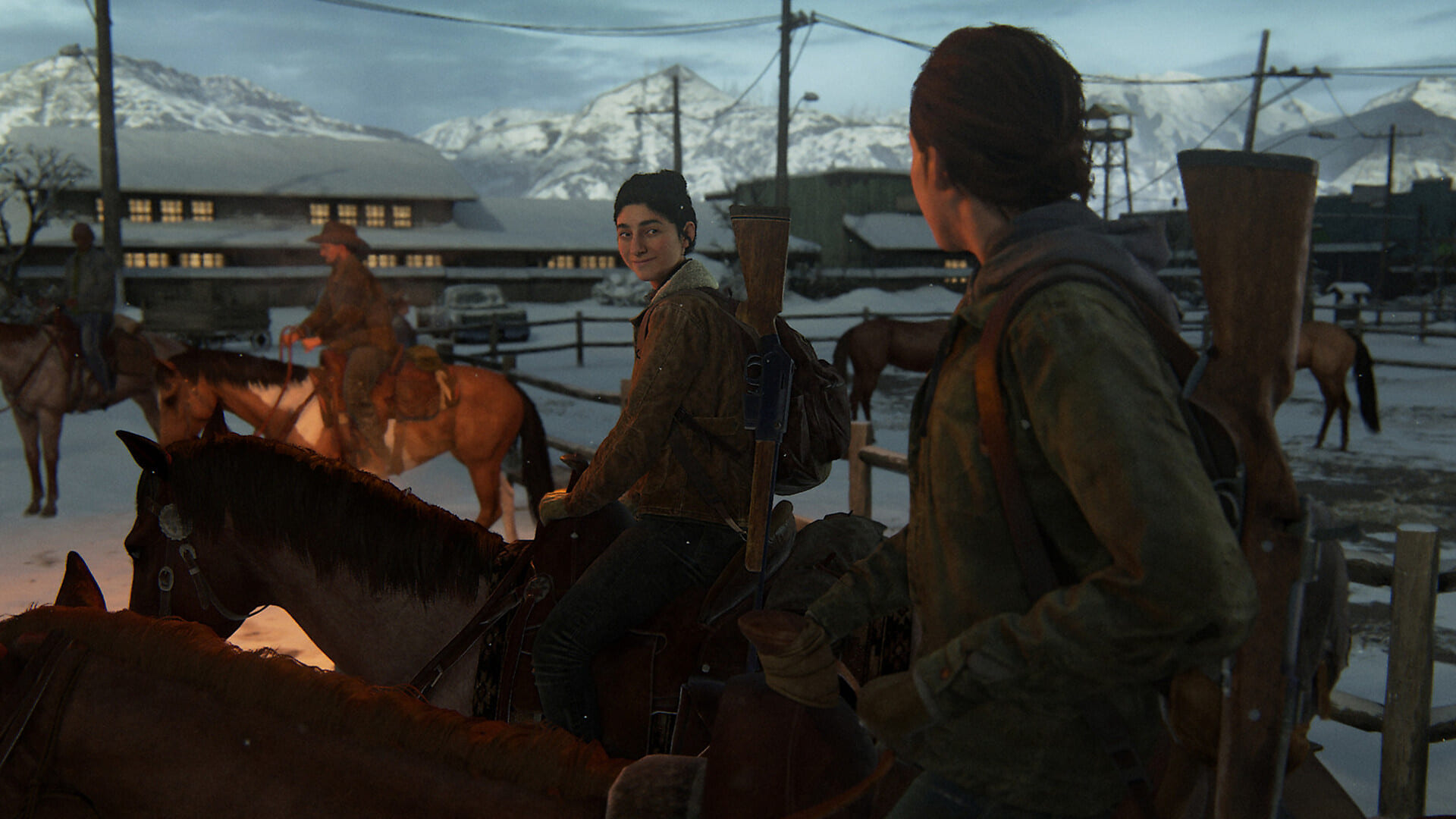
Yet, while the full game does push boundaries through its characters and plotting, it falls short in the final stretch by failing to deliver a conclusion that makes good on the journey. By turning vengeance into a “both sides” parable, TLOU2 undercuts its own characters, themes, and structure with an ending predicated on neatness over saying something of any substance.
The Two of Us
The story is told through two, diametrically opposed central protagonists. First is Ellie, who, upon being forced to watch the execution of her father figure Joel, takes to the open road in chase of his killers. The second is the executioner, Abby, who tracked Joel for several years after his actions at the end of the first The Last of Us. You control both, switching between the parallel narratives as you progress.
The first few times you play as Abby, you control her through meeting Joel and eventually double-crossing and kidnapping him. Just as you couldn’t choose not to save Ellie at the end of TLOU, or murder most of the Fireflies in your way as you broke out of that hospital, you can’t stop Abby either. When Joel is killed, you’re in Ellie’s perspective, making you witness the murder you now understand the reasoning behind, kicking off the cat-and-mouse plot that carries to the end. We open on one brutal act, in order to justify and beget a series more before the credits roll.
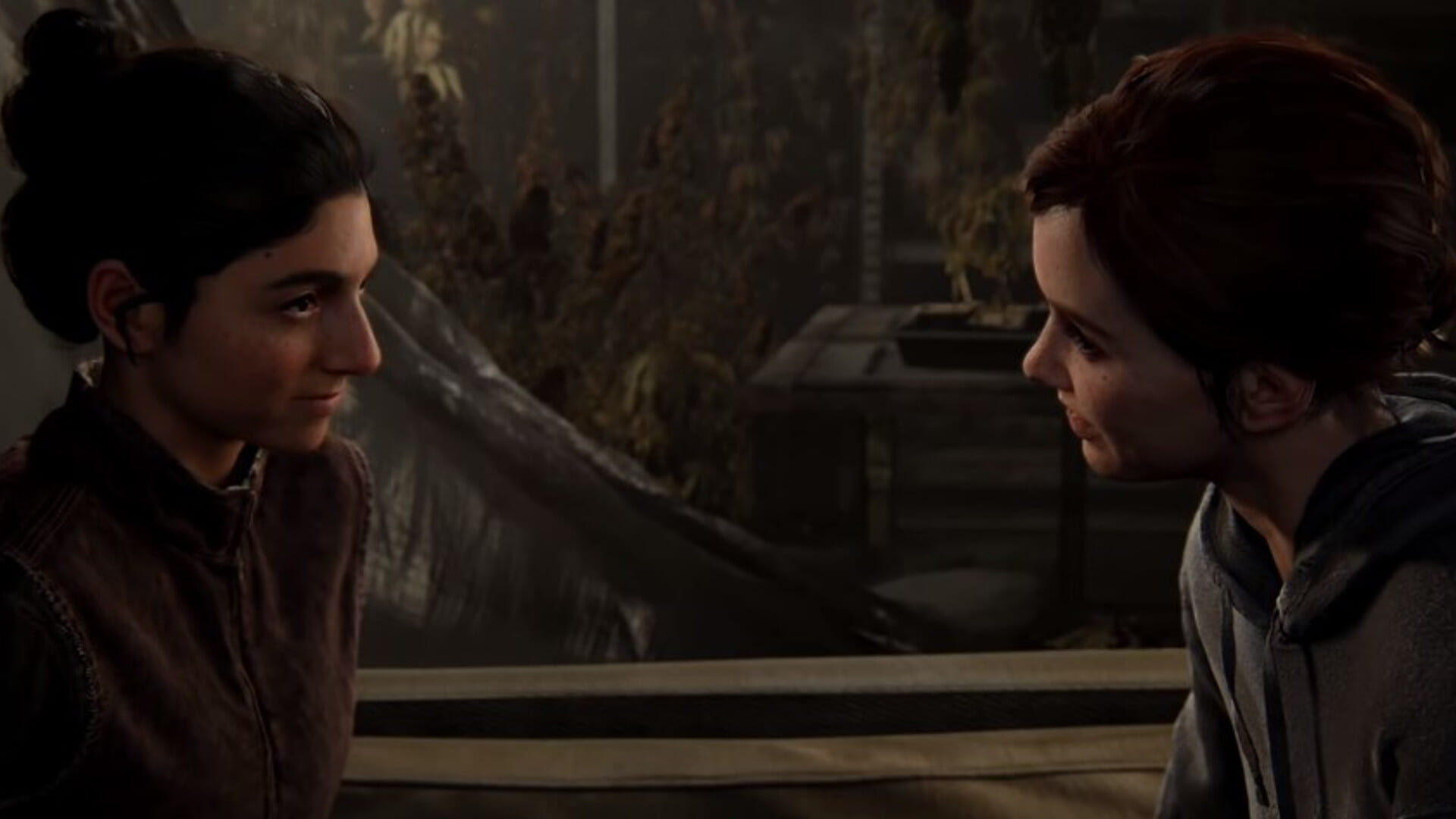
The setup is a strong one on a character level; both Ellie and Abby have solid arcs that complement each other, and much of TLOU2 is spent understanding just how vicious and capable they both are. The violence, in-game and during cinematics, is severe and haphazard, fueled by rage and survival, utilizing makeshift weapons to inflict as much bodily harm as quickly as possible. These women, and their supporting cast, have spent most of their lives navigating this world of infested zombies and puritanical tribalism, and their abilities in causing and escaping death reflect as much.
Abby and Ellie leave a trail of the others’ friends behind them as they spiral towards one another. Eventually, we get the heralded face-off, but in having two parallel victims, both justified in their anger, the game then refuses to choose, creating a toothless resolution built on fence-sitting. Ellie corners Abby, but resolves to let her live as they just part ways. The intention is to reflect Ellie learning to forgive Joel for the finale of The Last of Us, and extending that outward to break this heinous cycle, but the effect is closer to the words “violence is bad” appearing on-screen in the style of the Naughty Dog logo.
For a game that spends so long making you cleave through humans and zombies, emphasizing over and over that these characters are driven by one specific purpose, it’s very quick to fall back on a broad platitude when push comes to shove for closure. TLOU2 certainly has its share of quiet moments that hint at turning the other cheek, but when the central thrust is exploring abandoned buildings in which every other living thing is a threat, it’s hard to buy into this being the point all along.
Similarly, the relationship between the player and the characters is undermined by the outcome. You don’t have any choice in Ellie or Abby’s actions. Sometimes, through flashbacks, the game explicitly tries to make you feel guilty for these things, even though you couldn’t opt out. But you can opt out, by not playing. The complicity is meta-textual – you’re choosing to play-through it, therefore you’re consenting to what it shows and asks of you. As Roger Ebert observed in his review of Michael Powell’s Peeping Tom: “[Peeping Tom] is a masterpiece precisely because it doesn’t let us off the hook, like all of those silly teenage slasher movies do. We cannot laugh and keep our distance: We are forced to acknowledge that we watch, horrified but fascinated.”
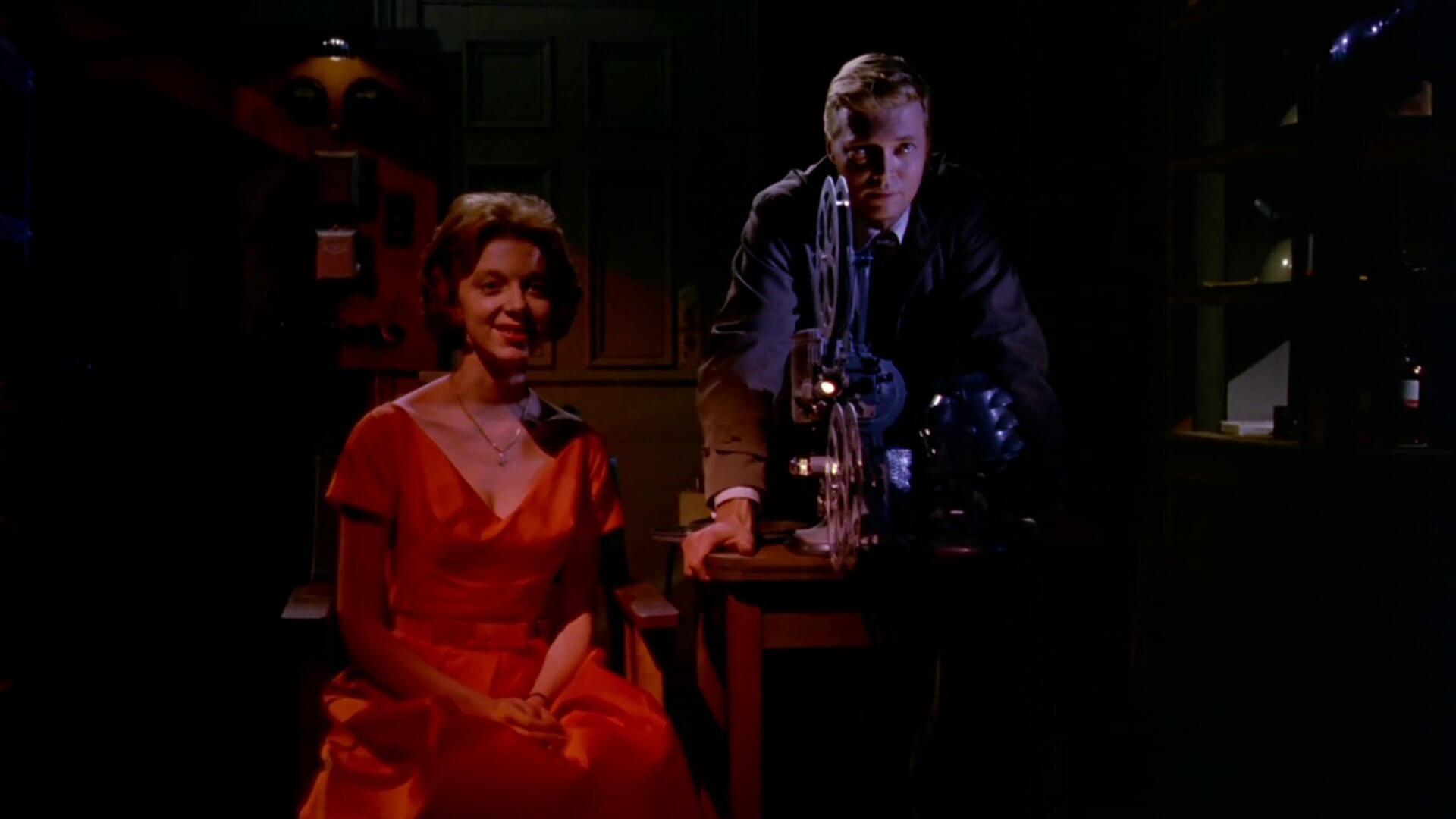
The Last Of Us Part 2 wants you to acknowledge that regardless of what happens, you still play, horrified but fascinated. If you play through to the end, whatever else the game makes you feel, misplaced or not, is trumped by your desire to shepherd Ellie and Abby through more gut-wrenching bloodshed. With each section, that desire burns stronger because you see what they put themselves through to get their pound of flesh, all underpinned by the growing tension from believing that only one of them is going to walk away when all is said and done.
They are both killers, and extremely good ones, that the game goes to great lengths to make you sympathize with and believe they each deserve a life. Peeping Tom did this, too – Mark Lewis grew up emotionally abused by his father, becoming so psychologically stunted murder and perversion were his only viable outlets. But that doesn’t overrule who he is now, and what kind of story the movie is telling.
In the finale of TLOU2, all the frustration and heartache you played through leads to a stalemate that refuses to condemn one way or the other. All those times you could’ve turned it off but didn’t, all those hours of brutality, and the game suddenly looks the other way with the implication you should forgive yourself. Whereas Peeping Tom ends with its perpetrator’s death, The Last of Us Part 2 tenuously shies away from the endgame of the complicity it initially extended.
The Worst of Us
Breaking cycles of violence is a valid theme and conclusion, but it’s not one TLOU2 adequately earns. It’s a game predicated on a ravaged world, delineated in ever-shifting territories by the Seraphies and the Washington Liberation Force (a metaphor for the Isreali-Palestinian conflict), that requires cunning and ruthlessness to navigate. Most of it involves you shooting or knifing enemies in closed spaces, then dashing for the exit. Where we spend around two-dozen-hours learning the ins-and-outs of what Ellie and Abby can do, feeling and growing their arsenal of abilities and weapons, TLOU2 vies for a distinctly apolitical route in a universe constructed as an engine for endless conflict.
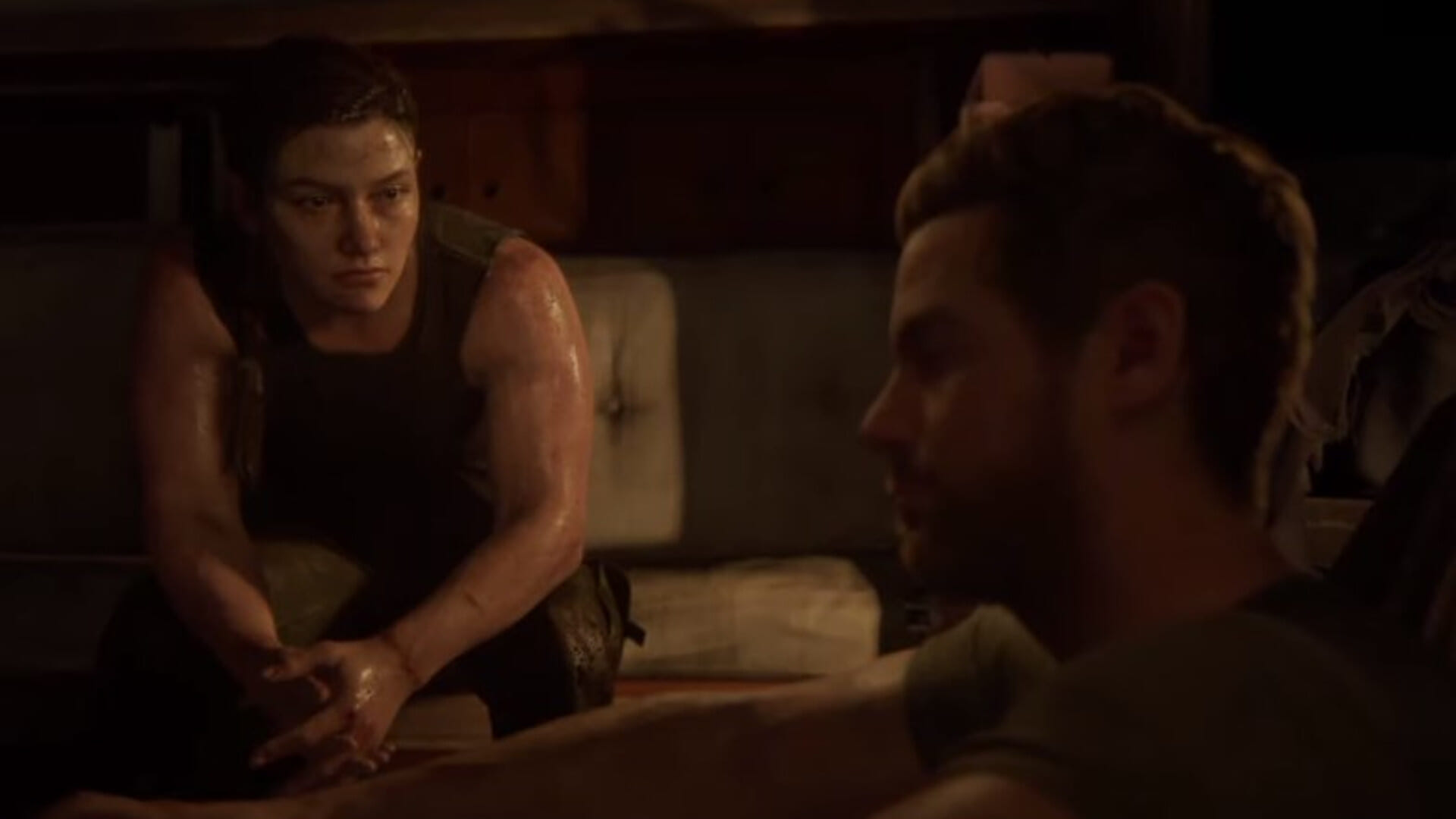
Triple-A game development is notorious for this, loading games up with politicized world-building and narrative backdrops, then claiming none of it is political to begin with, or playing down any inherent political stance. They’re often predicated on “fun” above all else, fun meaning pumping enemies full of bullets and blowing things up in large sandboxes without much context. TLOU2 is very much a product of this per-dominantly macho and patriarchal space, and on the surface it plays by those rules on a mechanical level – neither Ellie nor Abby feel much different from playing as Joel in the first. But this, in itself, has a sense of subversion because it’s handing what was a fantasy built in the standard male paradigm of strong-but-silent, kind-of-an-asshole hero, to a pair of women that are equally strong, but anything but silent, who have friends, and lovers, and a general sense of emotional intelligence.
Similar to Toshiya Fujita’s Lady Snowblood, where a woman hunts down her mother’s rapists and father’s murderers, the daughter of the original hero literally inherits his male bravado – a gaming trend all its own – challenging the status quo by asking players to believe the same level of violence from women as they’ve come to expect from men. The tools of the violence are given to those more commonly the victims, and this twisting of the paradigm is somewhat wholesale, as the supporting cast is remarkably diverse for a game of this scale. We have two female heroes, one of which is gay, an Asian-American man, a transgender man, a pregnant woman and a queer Jewish woman, all of which have shared histories, friendships, relationships, memories that bolster the two inter-twining threads. This rejection of the accepted default of needing a white leading man worked better than perhaps the developers considered, as the cognitive dissonance around playing as two vulnerable, but capable, women has coagulated into a bizarre, deeply misogynistic fixation on Abby’s muscles.
A lot of work clearly went into The Last of Us Part 2 feeling unpredictable, and deep, and somehow transcending expectations of the upper echelons of the industry. Which makes it all the more disappointing, then, when it falls back on a tepid, safe final act. Ellie, Abby and their respective circles endure a parade of misery, and us with them, only for the game to stumble when it comes to a worthwhile capstone. At two separate pinnacles, Abby and Ellie undergo swift changes of heart, deciding to live and let live, turning from bloodlust to passive altruism.
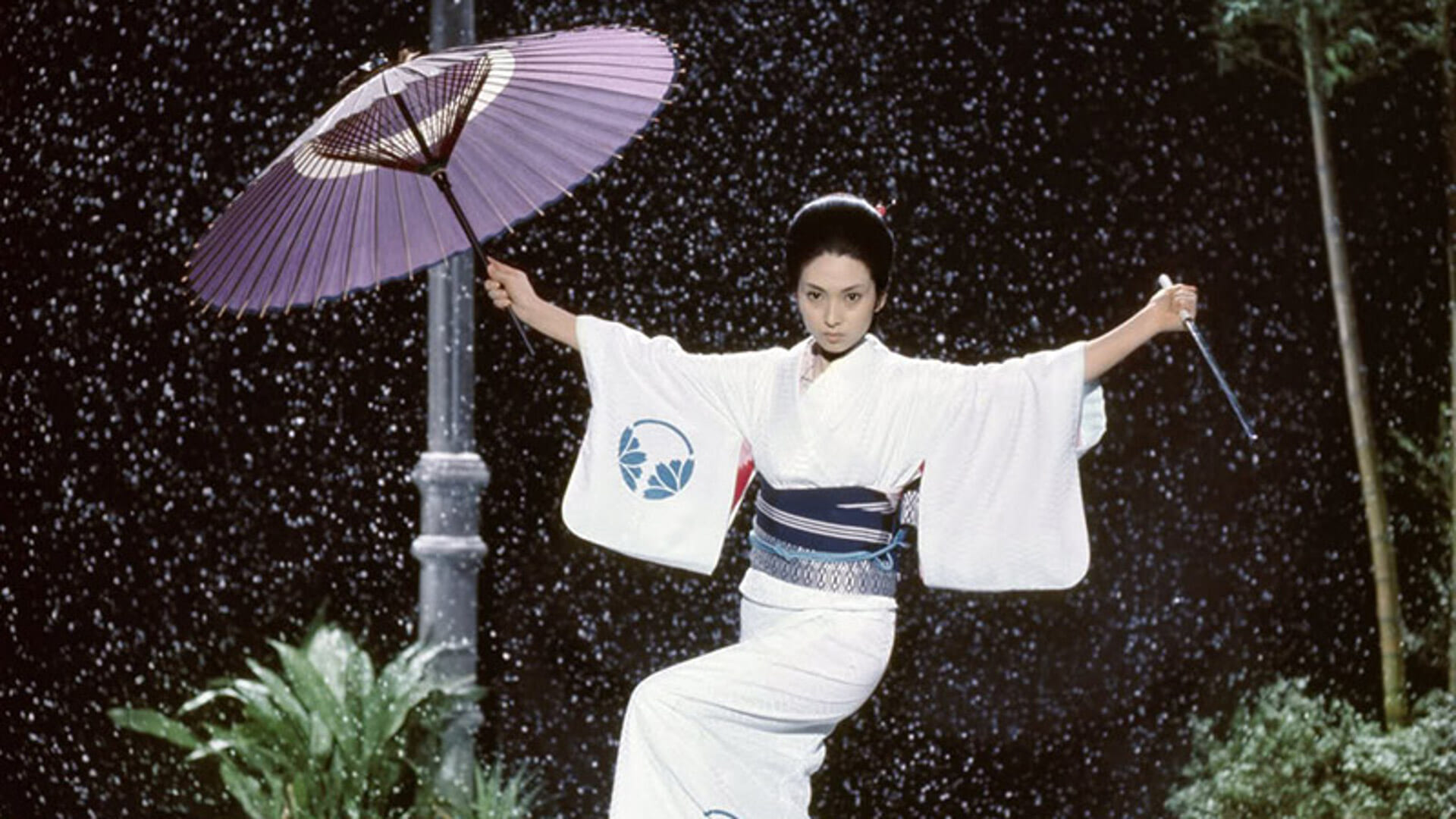
This isn’t to say one deserved to die over the other, but that what was laid out by the preceding 20-or-so hours was one dying and the other living. During the last stretch, The Last of Us Part 2 triples down as a mass-market game. Where much of the rest of it is pushing boundaries for the Triple-A field, the ending seems wholly manufactured to be the safest fade to black possible. Several characters are brutally murdered as we spend umpteen hours guiding Ellie and Abby towards one another, to be met with a double-ending where neither is able to go through with it.
It’s a finale that doesn’t want anyone to feel uncomfortable. A conclusion that reduces the journey down to the simplest, most easy-to-digest understanding. The ending itself is too quick, simple, and reflexively conservative – Ellie and Abby’s arcs functionally end in the same position as they both transition to quiet family life in different fronts of the new, new frontier. The execution, then, is tediously straight-forward. We get the first ending in Seattle, when Abby spares Ellie and Dina at the behest of Lev, then the second in the proceeding chapter, when Ellie returns the favor. It plays out like a choice-tree where you make one choice, then load a previous save to see the other, without the ability to choose, and both ending at the same point anyway. It’s an attempt to modulate from allusions of violent, disturbing genre, to mainstream, mass-market appeal that skews too heavily toward the latter.
The Rest of Us
In the fallout of the game’s release, there’s a sense some of the prominent creators very much still want to be viewed purely in the range of underdog horror fare. Amid widespread coverage that includes prominent film critics, voice actor Troy Baker and game director Neil Druckmann have gotten into Twitter spats defending the honor of their highly-rated, top-selling game. They seem dedicated to viewing TLOU2 akin to the exploitation films that inspire it, despite the heavy praise and enormous sales. The same self-satisfaction that emanates from the credits as The Last of Us Part 2 ends by giving the two leads separate yet almost identical ending scenes can be gleaned from Baker’s tweeting of Theodore Roosevelt’s ‘The Man In The Arena’ speech at one journalist’s claim that games are too long.
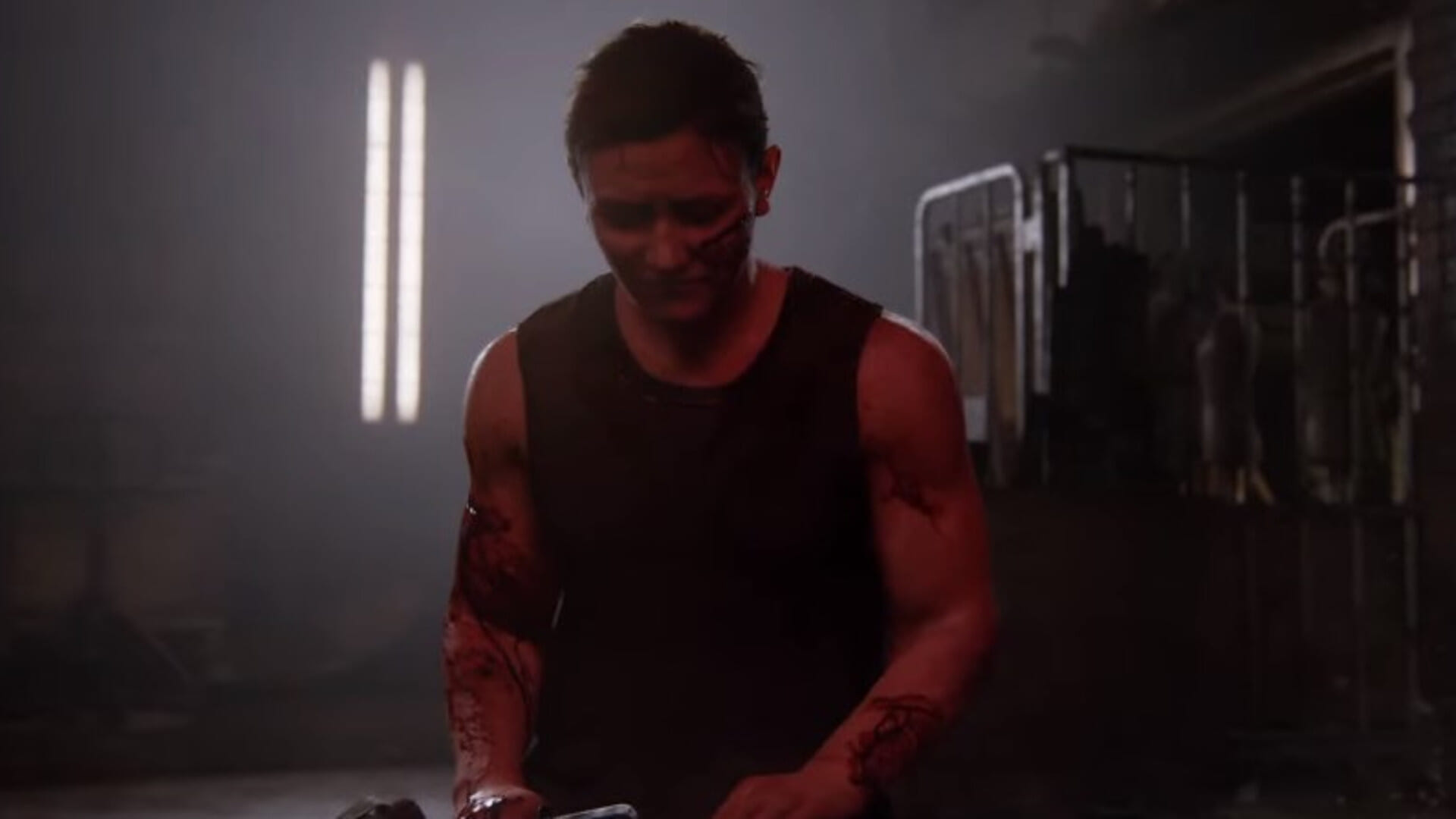
Naughty Dog has been producing critically acclaimed best-sellers for Sony since Crash Bandicoot in the nineties. Although TLOU2 does push boundaries, those boundaries are being pushed from the safest place in the industry. It may use ideas and imagery from the likes of Wes Craven’s The Last House on the Left, or Meri Zarchi’s I Spit On your Grave, but it is still a prestige game, coming from a massive studio with vast resources. It’s not scrappy filmmakers who run the risk of being censored, as both those films were in the eighties. Indeed, this is a strength of the medium, because gaming’s propensity for schlock and gore is such that something as unrelenting as The Last of Us Part 2 is at the forefront, when films like Coralie Fargeat’s Revenge and Michael S. Ojeda’s Savaged remain on the fringes.
In an industry that tends to shy away from deeper context, The Last of Us Part 2 revels in it before sacrificing it all in the final stretch. What plays as an unforgiving, relentless tour of two people’s need for reprisal ends on a suddenly and neatly tied bow. TLOU2 fleshes out this set of nuanced characters, from rarely seen points-of-view, in a complicated world full of terrors, then refuses to engage in the desperate choices that lie therein. You push through this atmosphere of relentless violence, to be greeted with an ending that sweeps what just happened under the rug. Naughty Dog may be onto something by adhering mainstream polish to ideas solidified in fringe-film-making, but if it really wants to do something special, it needs to pick a side.


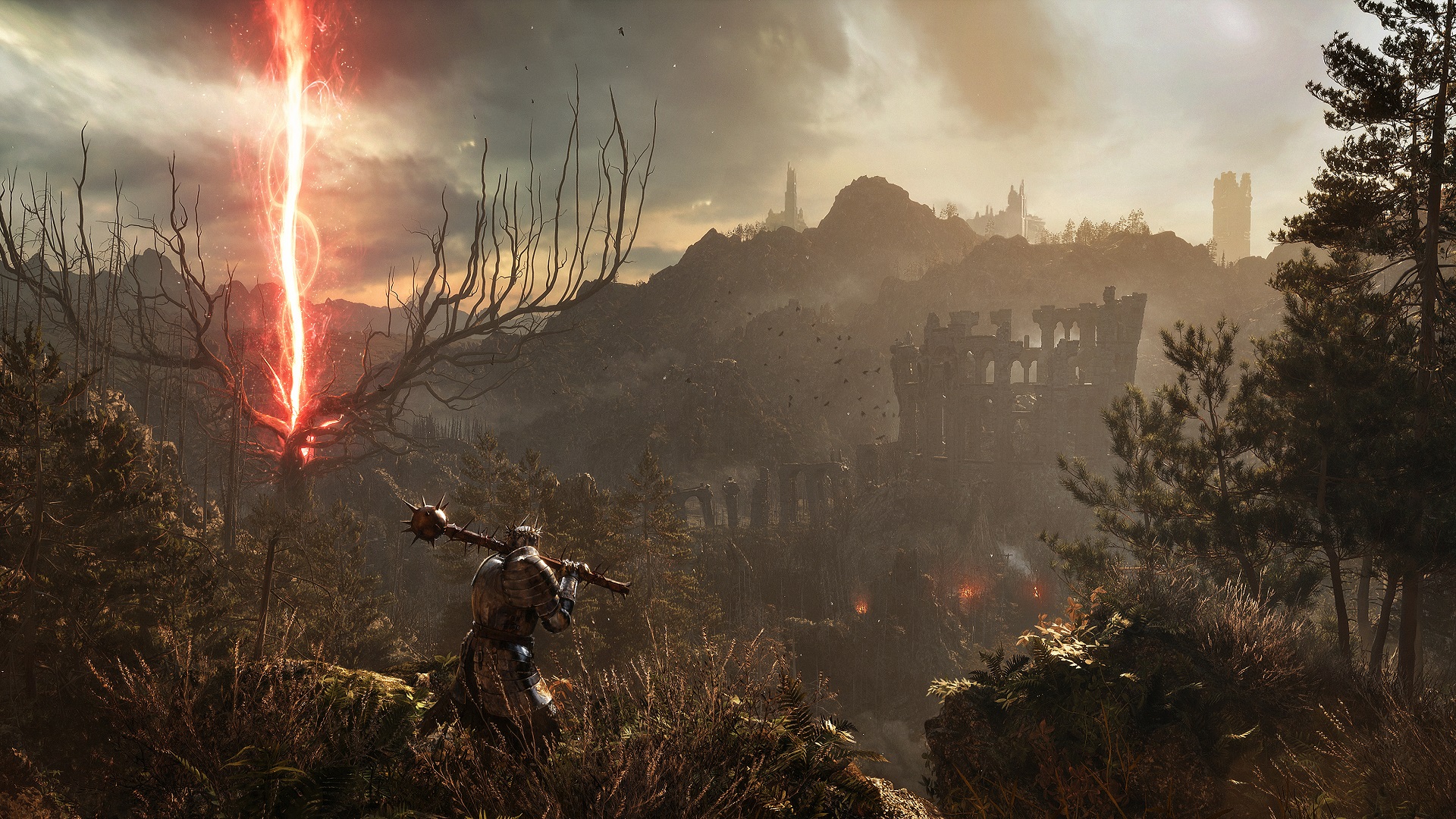
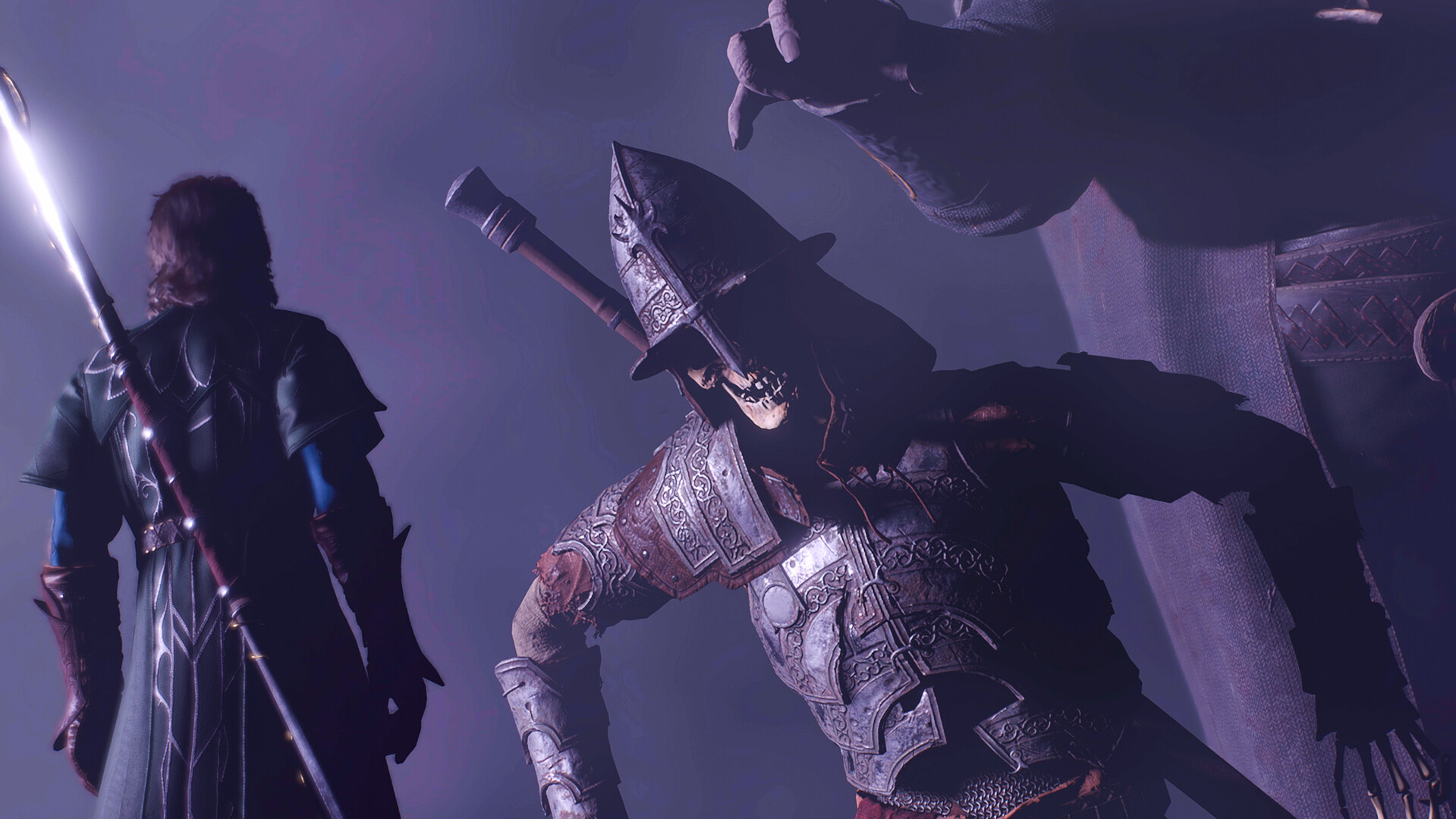

Duby
Hey I read the article and while I agree with some points and have questions about others, I do think your perception of the ending being mainstream and safe is way off. The amount of people clamoring for Abby’s death should show you where the mainstream lies. The fact that neither Ellie nor Abby get to go back to the norm. They have been truly changed by the three days in Seattle and their interactions with one another further evidenced by the last section of the game. Just because neither died doesn’t mean nothing happened. I think the view of things ending with a neat little bow wrapping everything up is a shallow way to look at it. But yeah thanks for sharing.
Confused
Could not disagree more about the conclusions the author drew from the ending of this game. In what world is this ending safe? The audience so fixated on seeing Abby die only to be denied the satisfaction is nothing but the opposite of a safe conclusion. It’s not what the audience wanted.
CB
That’s a lot of different and colourful ways to say that you didn’t like the fact that one of both of them didn’t kill the other… Any other ending, than the one we got, would have felt wrong.
MattBoothDev
I had a lot of fun playing it and was white knuckled the entire time. Then I went and played it again through NG+.
I honestly think people read far too much into it and forgot to just have some fun.
kakihara
It’s pandering if it’s clearly shoehorned in to prevent their years of work from being classified as ‘noninclusive’ or ‘racist’ by the morally-superior internet activists who feel they have the right to dictate what can’t be and what must be included in a work of art.
Outrage culture is actively undermining & dismantling what remains of artistic integrity to push a contemporary & bs agenda. To believe otherwise is to be blinded by cognitive dissonance.
If you don’t believe me then consider if this game were made just 1 or 2 years after the original. It would’ve been a vastly different game. And all the better for it if you ask me. None of the already tired & forced virtue signaling leaving the taste of sick in your mouth.
I think it’s a cowardly move to give in to these people. Why must the entitled, predominately white crybabies who barely exist outside of Twitter get to have their way all of the time? They’re a loud minority at best, and most rational-thinking people find them insufferable.
KropolisPSN
Your views on the conclusion indicate you missed the one major thing the game was trying to get across to players. This game was designed to force players to confront their own preconceived notions by making you feel what Ellie feels and then making you understand Joel’s killer. You’re meant to get to know Abby and see how her actions cause a ripe effect that changes her life and the lives of the WLF who helped her kill Joel. By the end of the game we see Ellie slide from a selfless girl willing to give her life for humanity to someone capable of the same kind of brutal behavior as Abby. Abby ends up trying to find her place in the world through a redemption arc with Lev and Yara. While I am very conflicted about the narrative decisions
I respect the talent behind this game because it was a risky decision to design the game this way but they handled extremely well. They created a game that demands the player to take a long look in the mirror and try to understand that one story’s hero may be another’s villain. If you look at these characters objectively you’ll find Abby and Joel aren’t all that different. People just can’t get beyond their own biases — and that is what the game is really trying to teach people.
Ri
I really like this article. It brings me hope that there’s still people out there who want horror games to actually have deeper meanings and actually stick with them. It’s frustrating they took the easy way out. I actually am excited to play the game after reading this though I’m probably going to wait until it’s very discounted. I thought reading about the plot would make me less excited but I want to see how this journey goes myself even if the ending is meh. I appreciate you mr author man!